
Jonathan Richard "John" Ellis is a British-Swiss theoretical physicist.

Maria Spiropulu is a Greek particle physicist. She is the Shang-Yi Ch'en Professor of Physics at the California Institute of Technology.

Georgi (Gia) Dvali is a Georgian theoretical physicist. He is a professor of theoretical physics at the Ludwig Maximilian University of Munich, a director at the Max Planck Institute for Physics in Munich, and holds a Silver Professorship Chair at the New York University. His research interests include String theory, Extra dimensions, Quantum gravity, and the Early universe.
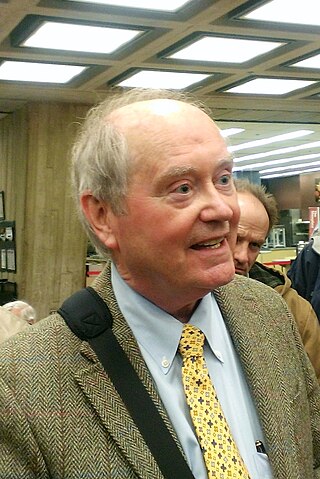
Chris Quigg is an American theoretical physicist at the Fermi National Accelerator Laboratory (Fermilab). He graduated from Yale University in 1966 and received his Ph.D. in 1970 under the tutelage of J. D. Jackson at the University of California, Berkeley. He has been an associate professor at the Institute for Theoretical Physics, State University of New York, Stony Brook, and was head of the Theoretical Physics Department at Fermilab from 1977 to 1987.

Richard Keith Ellis, is a British theoretical physicist, working at the University of Durham, and a leading authority on perturbative quantum chromodynamics and collider phenomenology.

Joseph David Lykken is an American theoretical physicist at the Fermi National Accelerator Laboratory and, from July 1, 2014 to Sept 6, 2022, he was the Deputy Director of Fermilab. He is currently Director of Fermilab's Quantum Division.
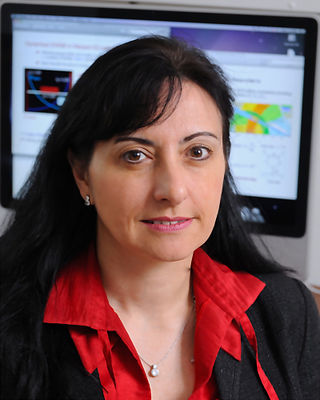
Marcela Silvia Carena Lopez is an Argentine theoretical physicist, and since November 2024 the executive director of the Perimeter Institute for Theoretical Physics in Waterloo, ON, Canada. Prior to taking this position she was a Distinguished Scientist at the Fermi National Accelerator Laboratory in Batavia, Illinois, where she was Director of the lab's Theory Division. She is also a professor at the University of Chicago, where she is a member of the Enrico Fermi Institute and the Kavli Institute for Cosmological Physics.
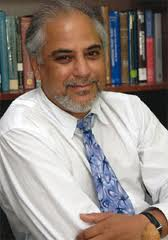
Swapan Chattopadhyay is an Indian American physicist who received his PhD from the University of California (Berkeley) in 1982.
Ikaros Bigi is a German theoretical physicist. His research focuses on refining the Standard Model phenomenology.
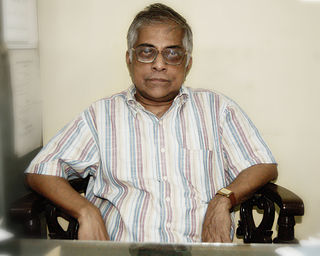
Amitava Raychaudhuri is an Indian theoretical particle physicist. He is Professor Emeritus at the Physics Department of the Science College, University of Calcutta where he earlier held the Sir Tarak Nath Palit Chair Professorship. He is the nephew of another renowned Indian physicist, Amal Kumar Raychaudhuri.

Tara Georgina Shears is a Professor of Physics at the University of Liverpool.
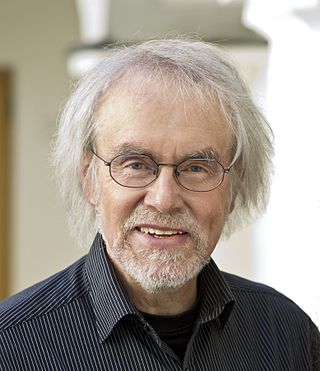
Andrzej Jerzy Buras is a Polish-born Danish theoretical physicist, professor emeritus at the Technical University Munich (TUM).
Alvin Virgil Tollestrup was an American high-energy particle physicist best known for his key roles in the development of the superconducting magnets for Fermilab's Tevatron and the formation of CDF.
Probir Roy is an Indian particle physicist and a former professor at Tata Institute of Fundamental Research. He is also a senior scientist of the Indian National Science Academy at Bose Institute and a former Raja Ramanna fellow of Department of Atomic Energy at Saha Institute of Nuclear Physics.
Biswarup Mukhopadhyaya is an Indian theoretical high energy physicist and a senior professor at Indian Institute of Science Education and Research, Kolkata. Known for his research on High energy colliders, Higgs bosons, neutrinos, Mukhopadhyaya is an elected fellow of the National Academy of Sciences, India. The Council of Scientific and Industrial Research, the apex agency of the Government of India for scientific research, awarded him the Shanti Swarup Bhatnagar Prize for Science and Technology, one of the highest Indian science awards, for his contributions to physical sciences in 2003.
Sinéad Farrington is a British particle physicist who works on the ATLAS experiment at the Large Hadron Collider.
Giulia Zanderighi is an Italian-born theoretical physicist born in 1974 in Milan, Italy. She is the first woman director at the Max Planck Institute for Physics.
Vernon Duane Barger is an American theoretical physicist, specializing in elementary particle physics.
Graham Kribs is an American theoretical particle physicist at the University of Oregon. He was elected a Fellow of the American Physical Society in 2015.
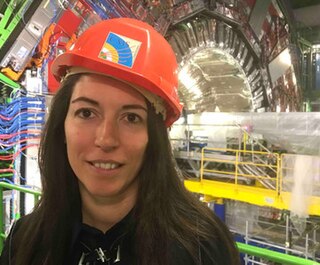
Florencia Canelli is since 2021 the appointed Swiss scientific delegate to the CERN council, the supreme decision-making authority of the CERN Organization. From 2021-2024, she was appointed chair of the IUPAP division of particles and field (C11). From 2021-2023, she was co-coordinator of the physics program of the CMS collaboration, a CERN experiment with over 3000 physicists. In 2010, Canelli was awarded the IUPAP Young scientist prize, an international prize awarded to one experimental and one theoretical physicist per year, for "her pioneering contribution to the identification and precision measurements of rare phenomenon through the use of advanced analysis techniques to separate very small signals from large background processes at the Tevatron collider." She has been an author on four multi-purpose collider experiments, namely the CMS experiment and ATLAS experiment at the CERN LHC, and the CDF experiment and D0 experiment at the Fermilab Tevatron. She is currently a full professor at the University of Zurich, Physics Institute, specializing in particle physics.











